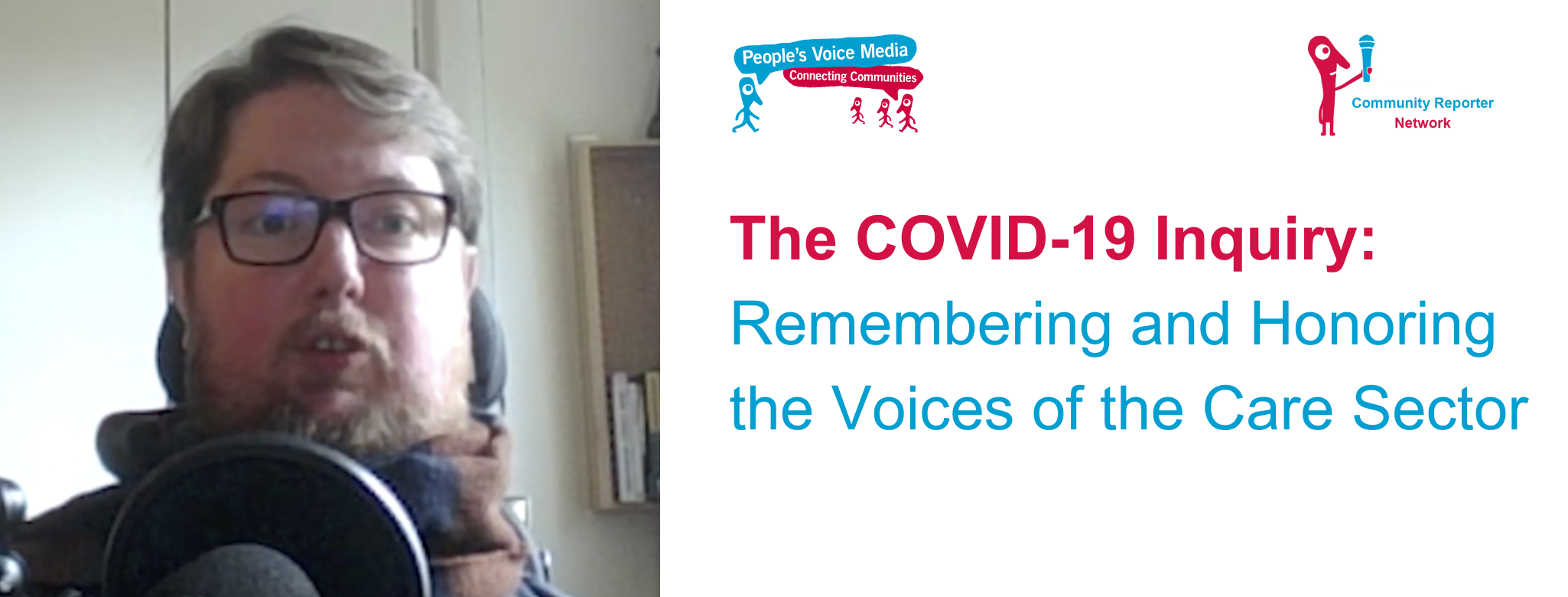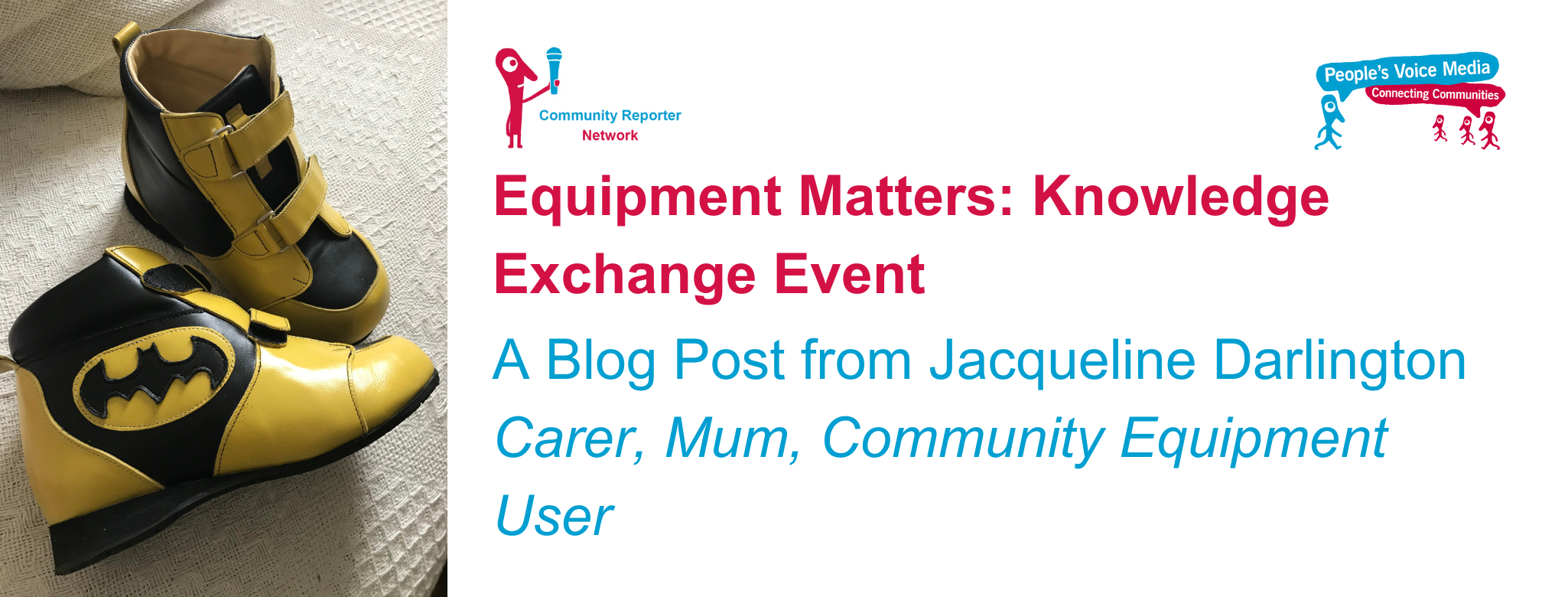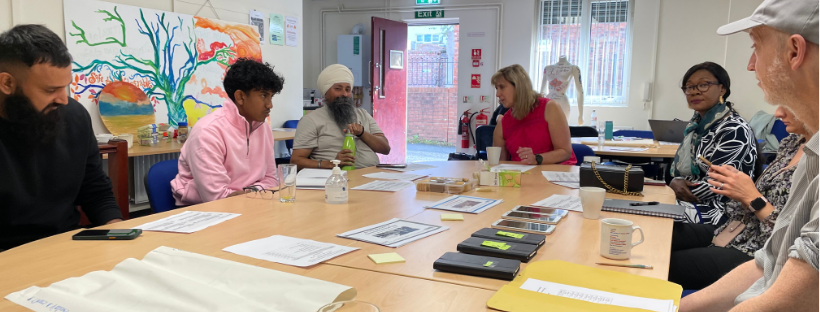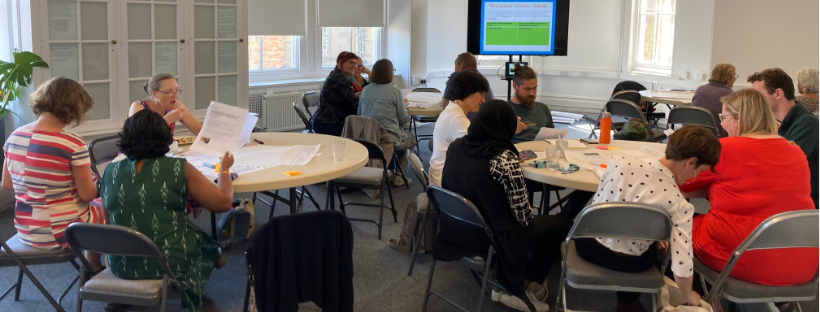AFROFUTURISM, ANTI-RACIST STORYTELLING & COMMUNITY REPORTING
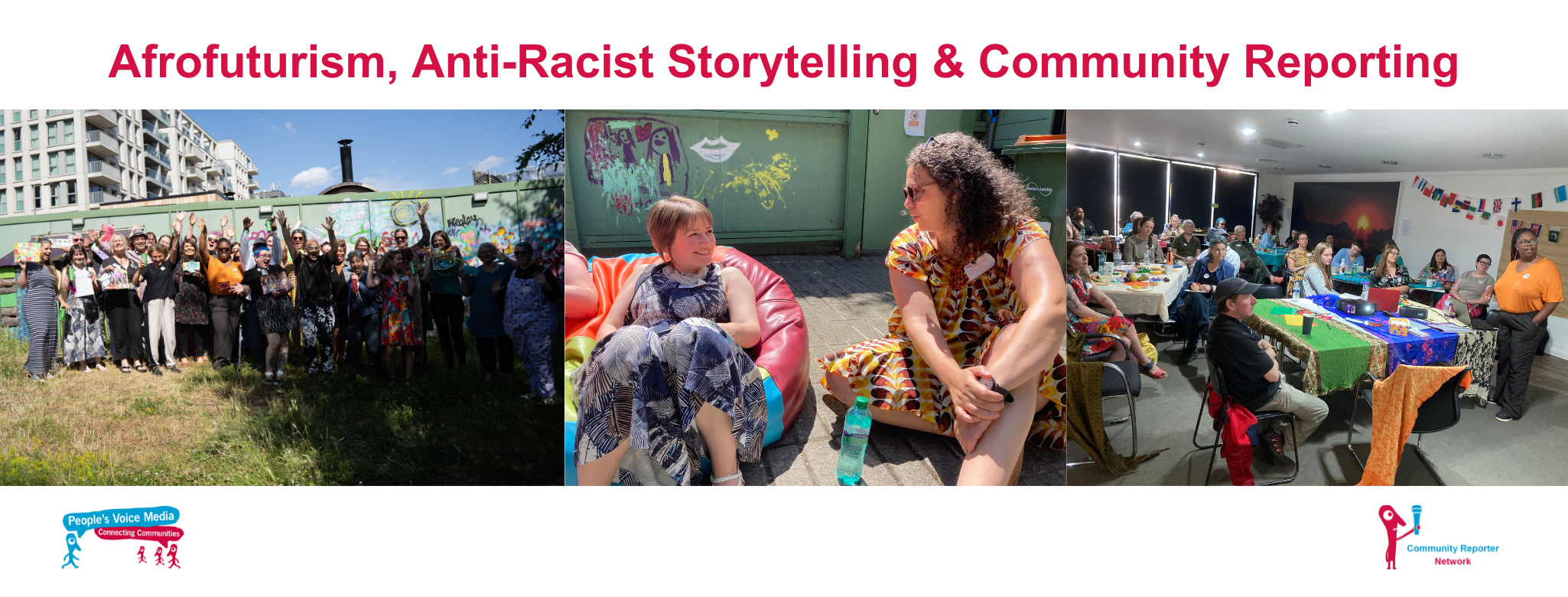
Reflections from our Learning Day – July 8, 2025
On July 8th, we gathered for a powerful day of learning, reflection, and imagination, led by Dr Dayo Eseonu (she/her). We explored racism through key concepts like intersectionality, whiteness, UK colonial histories, the wheel of privilege, and counter-storytelling. In the afternoon, we shifted into creative practice — imagining anti-racist futures through zines, poetry, art, and collaborative storytelling.
One attendee shared:
“As a disabled, autistic person, I felt fully included — from access adjustments to sensory-friendly spaces and warm, welcoming people. There were fidget tools, a sunny garden with bean bags, and even steel drum music at lunch — a joyful reminder of the power of community.”
They also shared what they learned:
“Anti-racism isn’t just about being offended — it’s about speaking up. I now feel more confident calling out racism, listening more deeply, and taking active steps in my work and daily life.”
This event showed that anti-racism, when rooted in care and creativity, can be transformative.
